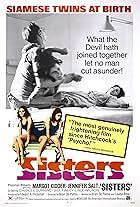IMDb RATING
6.8/10
4.2K
YOUR RATING
Two men--wealthy conservative Bill and far-right factory worker Joe--form a dangerous bond after Bill confesses to Joe about murdering his daughter's drug-dealer boyfriend.Two men--wealthy conservative Bill and far-right factory worker Joe--form a dangerous bond after Bill confesses to Joe about murdering his daughter's drug-dealer boyfriend.Two men--wealthy conservative Bill and far-right factory worker Joe--form a dangerous bond after Bill confesses to Joe about murdering his daughter's drug-dealer boyfriend.
- Nominated for 1 Oscar
- 1 nomination total
K Callan
- Mary Lou Curran
- (as K. Callan)
- Director
- Writer
- All cast & crew
- Production, box office & more at IMDbPro
Storyline
Did you know
- TriviaIn the 1980s, there were rumors that Peter Boyle might appear in a sequel. Citizen Joe, the sequel, would follow Joe as he tried to rebuild his life after spending ten years in prison and would also deal with his grown up kids who held more liberal beliefs. Cannon Films periodically took out ads for unmade sequels to Joe. In 1980, Cannon promised Joe II then, in 1985, announced the coming of Citizen Joe: The man has changed but the times have not...He's back. The film never materialized.
- GoofsMicrophone briefly visible over Joe's head in phone booth.
- Alternate versionsThe original UK cinema version was cut by the BBFC to heavily edit the sequence where Frank prepares and injects heroin. The 1986 Stablecane video was 15 rated and featured an edited print which ran around 10 minutes shorter and missed the scene out completely. The 2008 Optimum DVD is 18 rated and features the full uncut version.
- ConnectionsFeatured in Precious Images (1986)
Featured review
Bigotry at it's best
In this truly unique and penetrating movie that both personifies a culture clash and its inherent differences,the viewer gets a first hand look at the late 60's,early 70's and what they stood for.A drastic change in the way people dressed,wore hair,talked and thought.A mindset of differing views amongst the populace.The establishment vs. the Hippies.For within this movie are more than just characterizations,but more specifically,an outlook on life,war,habits,religion and peace. The main focal point and protagonist {JOE} is an unworldy blue collar stiff,who's fierce loyalty to flag and country is aptly on display in his basement,being a showcase of sorts for his gun collection,war memorabilia and medals.Living in a simple neighborhood with clone together housing and working in a factory,his life is relagated to wife's ordinary meatloaf with plenty of ketchup,beer at local bar and more beer at home and in basement ,of course.A rather humdrum existance,except for his views on many a topic of late - war,peace and them Hippies.And of course the blacks.Couldn't be a good bigot without mentioning and uttering the N word as vociferously and with such ease of authority as our rude and crude lead character.Yet,for all his apparent character flaws,I was drawn too.He was the genuine article and real character of sorts. Enter the Hippie element in the form of Susan Sarrandon and very authentic-looking Hippie boyfriend and their pad.Living in the village and surrounded by all kinds of Hippieish stuff like candles,tie-dye sheets and of course plenty of hippie clothes and long hair.Their a couple of drug-induced pushers{heroine habit} who look and act the part with authority.Slacking their way thru society and on the nerves of upper class white-collar father Dennis Patrick,who finds comfort and kindship with JOE as the two battle them Hippies,as Sarandon flees the scene to escape her strong-willed and establishment father.So Joe and father have a twofold mission;to find his daughter,and kick a little Hippie butt ,while on trail. The village hunt is exciting and takes me back to my early hippie days,hanging around those hippie places{every big city had a village of sorts}.which were nicely photographed.The movie has a certain air of conscienceness and feel for the early peace movement and its supporters and detractors.As the viewer becomes more and more acquainted with Joe and new buddy {white-collar Patrick},we witness a tour of mind and manners,both alcohol and drug fueled for culture clash and intensified search on meaning and lifestyle of the times.Absolutely,one of the best movies to show disparate view on the subject of clashing generations With an unorthodox ending and stark realization of denouement,this is a truly unique and compelling tale of society as it was unravelling before a generations eyes. 5 out of 5 star or 10/10 for brilliant story of mores and manners ,circa late 60's.Dig Daddio
helpful•166
- Thou Art-1
- Dec 20, 2001
- How long is Joe?Powered by Alexa
Details
Box office
- Budget
- $106,000 (estimated)
- Gross US & Canada
- $19,319,254
- Gross worldwide
- $19,319,254
Contribute to this page
Suggest an edit or add missing content






































